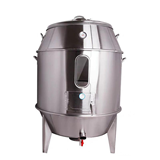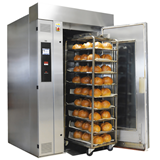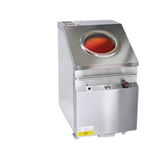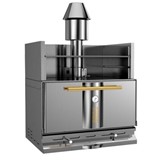Discover the best conveyor pizza ovens for Australian restaurants. Compare prices, features, and buying tips to find the perfect model for your business.
Key takeaways
- Conveyor pizza ovens in Australia typically cost between $6,000 and $25,000+, depending on size, brand, power source, and features.
- Electric conveyor ovens are commonly priced between $6,000 and $18,000, while gas-powered units range from $10,000 to $25,000+.
- Used or refurbished conveyor ovens can offer significant savings, with reliable units starting from $3,500.
- Conveyor ovens are ideal for high-volume pizza operations, offering consistent cooking and speed, with cooking times from 4–8 minutes per pizza.
- Energy efficiency and conveyor speed are key operational considerations, with some modern models reducing energy costs by up to 30%.
- Buyers should ensure compliance with Australian gas and electrical standards, including AS/NZS 60335 and local gas fitting certifications.
- Warranties generally range from 12 to 24 months, and equipment financing options are widely available in Australia for hospitality businesses.
Introduction
If you're operating or setting up a high-output pizza shop, takeaway outlet, or restaurant in Australia, investing in a conveyor pizza oven could significantly boost your kitchen efficiency. Designed for consistency and speed, conveyor ovens automatically move pizzas through a heated chamber, ensuring even cooking without the need for constant supervision.
But with such a wide range of options on the Australian market, knowing what to look for—especially when it comes to pricing, performance, and compliance—is critical. This comprehensive guide will walk you through everything you need to know before purchasing a conveyor pizza oven in Australia.
Types of conveyor pizza ovens
1. Electric conveyor ovens
- Most common in urban and indoor settings where gas access may be limited.
- Require adequate electrical load and ventilation.
- Typically smaller models suited for cafes or small pizzerias.
2. Gas conveyor ovens
- Preferred in high-volume commercial kitchens.
- Can be more energy-efficient in the long term.
- Require certified gas plumbing installation and compliance checks.
3. Ventless conveyor ovens
- Equipped with built-in air filtration, making them ideal for locations without full kitchen exhaust systems.
- Higher upfront costs but savings on fit-out and ventilation installation.
Conveyor pizza oven prices in Australia
As of 2025, here's what you can expect to pay:
- Electric conveyor ovens: $6,000 – $18,000
- Gas conveyor ovens: $10,000 – $25,000+
- Refurbished/used units: $3,500 – $12,000 (depending on condition, brand, and age)
Operation and cooking performance
Conveyor ovens are favoured for their continuous cooking cycle, which allows consistent output even during peak hours.
- Cooking time: 4 to 8 minutes depending on heat setting and conveyor speed.
- Temperature range: 120°C to 315°C.
- Control: Most models come with programmable digital controls for temperature and belt speed.
- Capacity: Units can produce between 20–100 pizzas per hour, based on size.
Maintenance and parts
To maximise your oven’s lifespan, regular cleaning and scheduled maintenance are crucial.
Key maintenance tasks:
- Daily cleaning of belts, crumb trays, and interior.
- Monthly checks of electrical or gas components.
- Professional servicing every 6–12 months.
Common parts that may require replacement:
- Conveyor motor
- Heating elements or burners
- Thermostats and sensors
- Belt assemblies
Financing options in Australia
Commercial kitchens can access a variety of financing options:
- Chattel mortgage: Retain ownership while paying over time.
- Operating lease: Use the equipment without owning it.
- Rent-to-own: Useful for startups with limited upfront capital.
Warranty and service
Warranties vary by manufacturer and model:
- Standard warranty: 12 months parts and labour.
- Extended warranties: Available for an additional fee (up to 3 years).
- Service plans: Some brands offer annual servicing packages to prevent breakdowns.
Compliance and certification in Australia
Conveyor pizza ovens must meet the following compliance requirements:
1. AS/NZS 60335.2.42
Covers safety for electric commercial cooking appliances. Applies to all conveyor ovens powered by electricity.
2. Gas Safety Certification
If using a gas oven, it must be installed by a licensed gasfitter and comply with AS/NZS 5601 (Gas installations).
3. Local council and food safety regulations
Ensure installation complies with ventilation and layout requirements in your state (e.g., NSW Food Authority, VIC Health Guidelines).
4. Electrical safety
Ovens must carry a Regulatory Compliance Mark (RCM) and be installed according to AS/NZS 3000 (Wiring Rules).
Energy efficiency and running costs
Operating a conveyor pizza oven in Australia involves more than just the upfront price—you also need to factor in energy usage, especially with rising electricity and gas costs across the country.
Energy usage by oven type:
- Electric conveyor ovens typically consume between 4.5 kWh and 12 kWh depending on size and throughput.
- Estimated operating cost: $1.30 – $3.50 per hour, based on average national electricity rates of 29.2c/kWh (source: AER, 2024).
- Gas conveyor ovens consume roughly 60–120 MJ/hour, depending on model and brand.
- Estimated operating cost: $1.50 – $3.00 per hour, based on LPG prices averaging 2.5c–4c per MJ in 2024 (source: ACCC).
Environmental rebates and considerations:
- Some state-based energy rebate programs (e.g. NSW Energy Saver or VIC's VEU program) may offer incentives if your new appliance reduces energy usage compared to older equipment.
- Look for conveyor ovens with an ENERGY STAR rating or third-party efficiency certification.
Fit-out and installation considerations
Proper fit-out and setup is essential to safely and efficiently run a conveyor pizza oven in your kitchen or hospitality space.
Space and layout requirements:
- Conveyor ovens are bulkier than traditional deck ovens. Models can range from 1.5 to 3 metres in length depending on the belt and stack configuration.
- Allow at least 50–100cm clearance around the unit for ventilation, cleaning access, and safe workflow.
Electrical and gas setup:
- Electric ovens may require 3-phase power (415V), especially in larger models.
- Gas ovens typically require a dedicated gas line (natural gas or LPG) and compliance with AS/NZS 5601 for safe installation.
- Always confirm with your supplier what electrical and gas outlet types are required before delivery.
Ventilation and noise:
- Conveyor ovens generate significant heat and fan noise, which can affect front-of-house dining areas.
- You’ll likely need:
- A commercial-grade exhaust hood, compliant with AS 1668.2
- Adequate ventilation clearance per local council or health department regulations
Stackability and mobility:
- Many models are stackable (up to 3 decks) to save space while increasing output.
- Some compact models include casters or wheels for flexible placement and easier cleaning.
Fire and safety compliance:
- Ovens must comply with AS/NZS 60335 for electrical safety and AS 1851 for fire safety (especially in commercial kitchens).
- Make sure your setup includes:
- A working fire suppression system (e.g. Ansul)
- CO2 or wet chemical extinguishers near the cooking area
- Clearly marked emergency shut-off switches
Common questions buyers have
How do I choose between electric and gas?
- Electric ovens are better for smaller spaces or locations without gas connections.
- Gas ovens are ideal for high-volume, cost-conscious operators.
Can I install a conveyor oven myself?
No. Installation must be done by a qualified electrician or gasfitter, depending on the oven type, to comply with Australian safety laws.
How long does a conveyor pizza oven last?
With regular maintenance, these ovens can last 7–15 years. Higher-end brands often offer longer durability and better spare part support.
Are used conveyor ovens worth it?
Yes, if they’re from reputable brands and have been inspected or refurbished. Always check warranty and service history before purchase.
Do I need a canopy for my conveyor oven?
Most models require an extraction canopy unless ventless. Check with your local health department and your equipment supplier.
Final thoughts
A conveyor pizza oven can be a game-changer for your Australian hospitality business—offering speed, consistency, and long-term efficiency. But choosing the right unit means understanding your business needs, comparing features, knowing the costs, and ensuring compliance.
With Australia's foodservice industry continuing to grow and evolve, now is a great time to invest in equipment that delivers consistent quality and supports your kitchen’s productivity.















